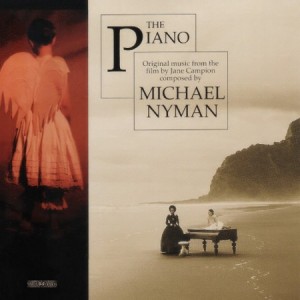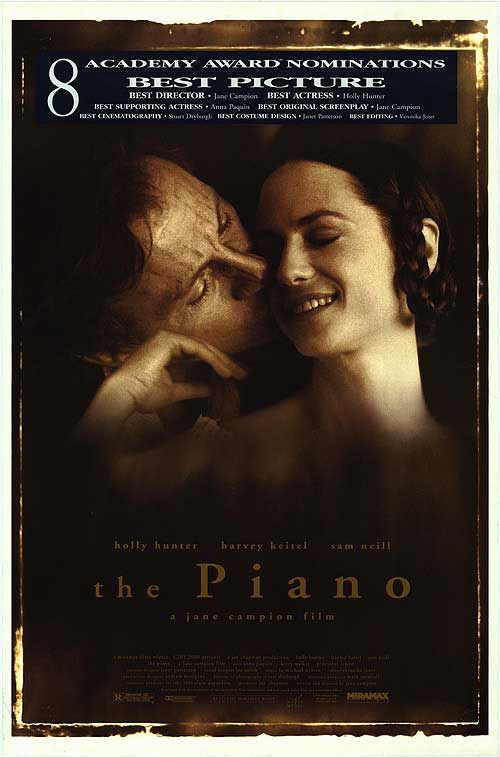
Ask any film score buff and he or she will attest that the Academy has always had a contentious history with film composers. Over the last few years, the AMPAS has made a few publicly egregious snubs: Johnny Greenwood for There Will be Blood and Hans Zimmer and James Newton Howard for The Dark Knight come to mind. Barring their questionable nominating practice, the Academy has developed patterns of complacent and downright unimaginative selections. Whether it is nominating John Williams for everything (this year saw him nab nods for both War Horse and The Adventures of Tin Tin), or snubbing great scores to difficult films without the benefit of a more prestigious composer (Cliff Martinez this year for Drive), or overindulging international composers (Gustavo Santaolalla winning a second time for Babel, A.R. Rahman winning for Slumdog Millionaire). Largely, if the Academy does take the effort to award a fine composer, it’s for some of their weakest or safest work (Elliot Goldenthal for Frida).
More often than not, a nom for Best Picture does not necessarily guarantee a nom for Best Score, as do the Best Editing and Best Director categories. But when a Best Picture candidate contains a plot that is inextricable from its music—bewitching music for that matter—such an omission becomes baffling. One of the Academy’s most shameful oversights occurred in 1994 when The Piano, a film which garnered eight nominations, failed to earn one for its most crucial technical element: the score by Michael Nyman.
Nyman had been tethered to British filmmaker Peter Greenaway, with whom he scored nine of his films, until Prospero’s Books in 1991 when the composer objected to his score being altered. The break from Greenaway led to a creative revival for the artist, producing a series of brilliant one-offs with other directors—Gattaca with Andrew Niccol, Ravenous with Antonia Bird, The End of the Affair with Neil Jordan and a potent if brief partnership with British director Michael Winterbottom. But it is still his score for Jane Campion’s The Piano that solidifies his notoriety within the musical world.
 Campion’s film, a gorgeous evocation of unbridled love under repression, thrives on its dreamy piano theme, which provides passion to the film’s romance and, most importantly, a voice to its mute lead character. It is a score that functions both diegetically and externally, as Holly Hunter’s lead character, Ada, performs the piece that can also be heard on the soundtrack.
Campion’s film, a gorgeous evocation of unbridled love under repression, thrives on its dreamy piano theme, which provides passion to the film’s romance and, most importantly, a voice to its mute lead character. It is a score that functions both diegetically and externally, as Holly Hunter’s lead character, Ada, performs the piece that can also be heard on the soundtrack.
If there is any detriment to the beauty of the music, it is in the editing of Nyman’s score, which at times, is less than flattering. His pieces are so lush that simply fading them out seems an injustice to their power. In the context of the film’s narrative about fleeting pleasures, however, the editorial stunting is quite apropos. Though The Piano is a terrific film, the score is transcendent, unable to be fully experienced when hampered by cutaways and fadeouts.
Observe a scene from the film that first introduces Nyman’s theme in all its glory and then listen to the full track.
The Promise Scene
http://www.youtube.com/watch?v=hEf6CD7azCE&feature=related
The Promise Full Track
http://www.youtube.com/watch?v=fZeA0PbjcdI
 It is no surprise Nyman’s music became an international best seller and frequently pops up on lists of greatest scores. The Piano won three Academy Awards independent of the snub (Best Actress, Best Supporting Actress, and Best Original Screenplay). In fact, the AMPAS was not the only awards branch to neglect to nominate Nyman. Out of the myriad of awards The Piano was nominated for, the score was only nominated by the BAFTA and the Golden Globes. Its sole win was from the Australian Film Institute. The Academy most certainly deserves some blame, but this was an oversight by an entire film community, which, in its clamor to award a beloved film, became tone deaf.
It is no surprise Nyman’s music became an international best seller and frequently pops up on lists of greatest scores. The Piano won three Academy Awards independent of the snub (Best Actress, Best Supporting Actress, and Best Original Screenplay). In fact, the AMPAS was not the only awards branch to neglect to nominate Nyman. Out of the myriad of awards The Piano was nominated for, the score was only nominated by the BAFTA and the Golden Globes. Its sole win was from the Australian Film Institute. The Academy most certainly deserves some blame, but this was an oversight by an entire film community, which, in its clamor to award a beloved film, became tone deaf.
Nyman still has yet to be nominated for an Oscar. Here is a list of a few major composers and their scores that have been snubbed by the Academy since 1994:
Marco Beltrami- Hellboy, The Three Buriels of Melquiadas Estrada
Don Davis- The Matrix
Danny Elfman- Hulk
Michael Giacchino- The Incredibles, Star Trek
Elliot Goldenthal- Alien 3, Batman Forever, Titus
Jerry Goldsmith- The Ghost and the Darkness, Star Trek: First Contact
Johnny Greenwood- There Will Be Blood
Cliff Martinez- Drive, Solaris
Mark Mancina- Speed, Twister
Clint Mansell- The Fountain
James Newton Howard- Signs, Unbreakable
John Powell- The Bourne Supremacy/Ultimatum, United 93, X-Men: The Last Stand
Edward Shearmur- The Count of Monte Cristo, Reign of Fire
Howard Shore- The Cell
Hans Zimmer and James Newton Howard- The Dark Knight

